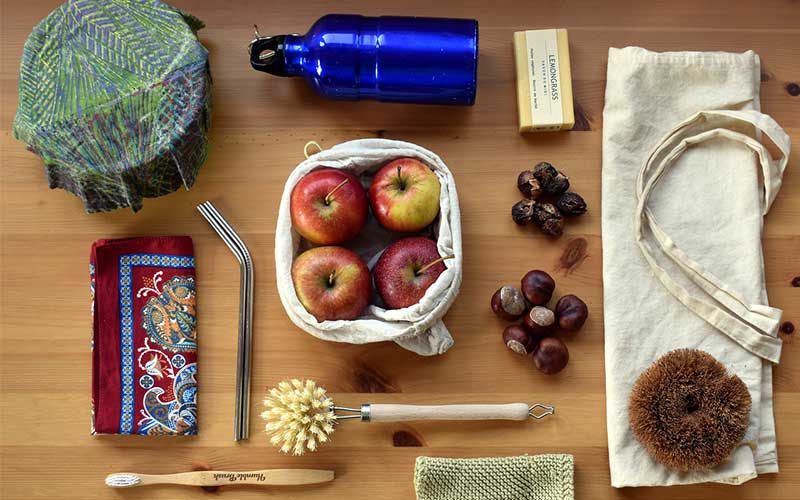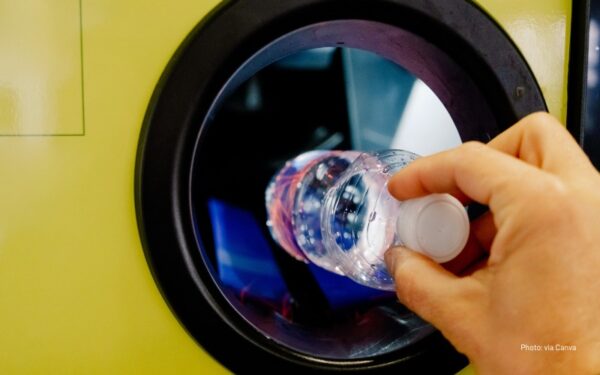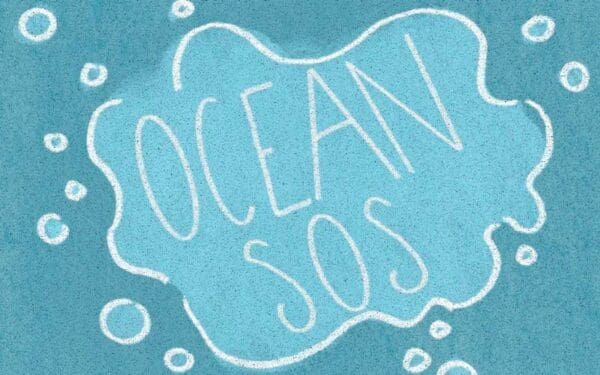
Swapping out single-use products for reusable ones is a great way to start slashing your trash. Photo: via Pixabay
You want to reduce waste in your life, but you don’t know where to begin. How are we supposed to navigate the labyrinth of trash that enters our lives on a daily basis?
While it may seem difficult, just know that you don’t need to slash all your trash in one fell swoop. Making any life change takes time, and the same goes for reducing your waste – including what goes in your recycling bin. That’s why we’ve put together this list to help you get started.
And, while we can all do our parts individually, it’s also important to remember that our waste problem is not your fault. Your actions alone will not solve our trash crisis. Long-term solutions can only be accomplished by changing how products are designed and packaged, as well as how our waste is managed overall – and you have a role to play in these efforts, too.
1. Go Package-Free
Buy package-free food and body-care products to cut the amount of packaging that winds up in landfills or incinerators. You can find package-free items at grocery stores, personal and homecare shops, and buy-in-bulk retailers.
2. Pack Containers
Bring your own reusables! Instead of using single-use take-out utensils for lunch, bring your own containers to school or work (do the same with your kids’ lunches, too!).
3. Swap Out Plastic
Switch your body-care items, like toothbrushes, cotton swabs, and shower loofahs, for sustainable and plastic-free options. Many local grocery stores carry some of these alternatives. You can also check out options online.
4. Bring a Reusable Mug
When ordering coffee from your favorite shop, bring a reusable mug or thermos for the barista to refill instead of getting a single-use to-go cup. You may even get a discount on your morning pick-me-up!
5. Redesign Your Home to Reduce Waste
When designing your space, reduce the number of surfaces. Fewer spaces for junk to go on means less clutter, and less clutter lowers waste.
6. Make School and Office Supplies Last Longer
Swap out staples for paper clips. Replace the ink when your pen runs out. Use a laptop or smart tablet for taking notes. Every small action makes a difference.
7. Trade Plastic Wrap
Reusable beeswax wraps offers an excellent alternative that’s functional and sustainable. Usually made from organic cotton, beeswax wraps can even go in the compost bin. You can find beeswax wraps at your local grocery or kitchen supply store.
8. Coffee? Sharing Is Caring
Rather than using disposable k-cups for your morning coffee, brew an entire pot for your family or your colleagues. This helps cut back on plastic waste, and you can even compost the coffee grounds and filters.
9. Thrifty Towels
Instead of using paper towels – which aren’t recyclable – turn your old clothes, cloth towels, and linens into reusable rags.
10. Pack Your Zero Waste Tips
Time to pack! Choose your favorite tips to build a zero-waste kit that you can keep in your car, backpack, or briefcase. That way you’re always prepared to go zero waste on the run!
Bonus Tip to Reduce Waste
Making these changes in your life is a great step towards slashing your personal waste, but a zero-waste lifestyle alone is not a long-term solution to our trash crisis. We need systemic changes – meaning modernizing recycling, introducing reuse services, and setting up composting programs – and we have the tools in place right now to make that happen.
While our trash problem is not your fault, you are the solution. Together, we need to call on our legislators to shut down old, outdated incinerators and landfills that are poisoning our communities. We need to urge them to take action against single-use products that are polluting our environment. Our collective voices can create change and move us towards clean, sustainable, zero-waste systems.
Our bonus tip is this: use your voice to advocate for change. It’s not enough to slash trash in your own life. We need to change the conversation around trash, and that starts by advocating for zero-waste systems.



